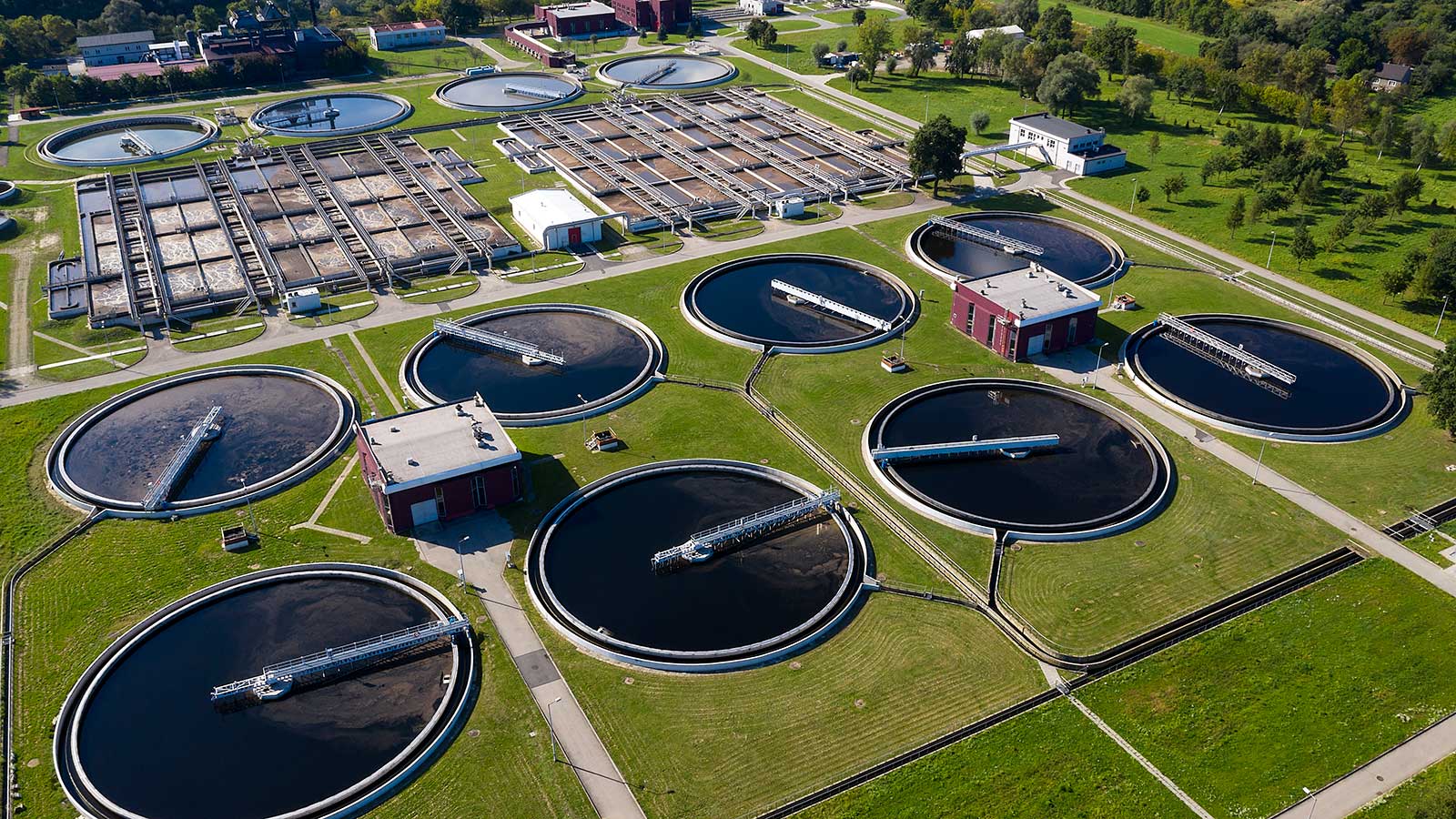
Engineer a More Sustainable, Safer Society
Get on the path to designing a more sustainable world. A Bachelor of Science in Environmental Engineering from Clarkson University helps you lead the charge.

Get on the path to designing a more sustainable world. A Bachelor of Science in Environmental Engineering from Clarkson University helps you lead the charge.
Become a Solinsky Engineer.
The Solinsky Engineers Program is designed to give future engineers a community, a $20,000 scholarship to attend Clarkson for four years, and a variety of incredible benefits to enhance their educational and co-curricular college experience.
We are transforming and elevating our industry-driven engineering education. How? Through scholarship offerings, game-changing facility upgrades and unmatched hands-on learning opportunities. Clarkson will give you the skills, confidence and experience to lead the future of engineering and manufacturing.
Being a Solinsky Engineer opens doors to real experience, camaraderie, and accelerated career growth. We'll choose up to 100 first-year engineering majors annually to be a part of this exciting initiative. Find out how to apply.
Environmental engineering began as a subdiscipline of civil engineering. Today, increasing focus on preserving our world now fuels demand for innovative professionals equipped to:
The program’s curriculum reflects environmental engineering’s multidisciplinary focus. Take courses in environmental engineering, earth science, chemistry, ecology, wastewater treatment, physics, mathematics, water resources, environmental quality, systems and hazards. Put elective credits toward a minor to develop a specialization.
We train our students to bring technical expertise and an innovation-driven mindset to the workforce to develop more cost-effective operations, processes and products and ensure build safety and excellence through all stages of a project. Learn to analyze problems and devise solutions prioritizing the public good using a broad yet specialized knowledge base.
At the same time, you get taught by faculty leading the field through innovation. As one example, our environmental engineering faculty have developed a prototype for PFAS mitigation and destruction.
And, our Environmental Engineering majors had a 100 percent placement rate in 2024.
For more information, view the course catalogue for current program requirements, course numbers and credit hours
The environmental engineering program consists of 21 credit hours in environmental engineering, 27 credit hours of first year engineering curriculum, 18 credit hours in professional electives, and 45 credit hours in other electives.
All courses are 3 credits unless noted.
The following courses are required for all students, irrespective of their program of study. These courses are offered during the fall semester, with FY100 First-Year Seminar being required of only first-year students. Both FY100 and UNIV190 are typically taken during the fall semester of the first year at Clarkson.
FY100 First-Year Seminar
UNIV190 The Clarkson Seminar
Students are required to complete the following courses:
Environmental Engineering
Professional Experience
Students are required to complete the following Professional Experience:
ES499 Professional Experience (0 credits)
Students must complete the following courses in their first year:
Core Electives
Students must complete the following courses:
Core Professional Courses
Students must complete three of the following courses:
Students must complete the following electives:
Earth Science Elective
Students must complete one of the following courses:
Professional Electives
Students majoring in environmental engineering will have approximately 18 credit hours available to use toward professional electives.
Knowledge Area/University Course Electives
Students will have at least 9 credit hours available to use toward Knowledge Area and/or University Course electives to satisfy the Clarkson Common Experience requirements.
Apply your growing knowledge base to faculty- or Institute for a Sustainable Environment-led research projects. Opportunities are open to undergraduates during the school year and summer sessions. Explore research at Clarkson.
Career preparation is at the heart of the bachelor’s in environmental engineering program. Fulfill your Professional Experience requirement with an internship or co-op assignment. Observe and learn from professionals in the field. Explore the possibilities available to environmental engineers. Learn more about co-ops and internships.
Learn to think quickly with SPEED (Student Projects for Engineering Experience & Design) teams. Draw from your foundation in mathematics, the sciences, design and engineering while taking advantage of the technologies available at the Student Prototyping Machine Shop and the Ignite-led Innovation Hub. Learn more about participating in SPEED competitions.
Find a community of creators and innovators through Clarkson’s 200-plus student groups. Explore all clubs and organizations now.
Use your elective credits to explore a subdiscipline or related area with a minor:
Grow your knowledge about responsible water and natural resources use. Learn to preserve our world through more sustainable practices. Learn more about the environmental engineering minor.
Focus on the relationship between chemicals, waste and the environment. Learn tactics to better protect our world. Learn more about the environmental health science minor.
Understand what’s needed to protect the environment. This minor blends policy with environmental science. Learn more about the environmental policy minor.
Grow your knowledge of how the Earth operates. Explore ecology, spectroscopy, bioinformatics, microbiology and hydrology further. Learn more about the environmental science minor.
Expand your knowledge of sustainable energy systems. Learn about their potential to transform society going forward. Learn more about the sustainable energy systems engineering minor.
Learn to bridge the divide between economic development and preserving the environment. Focus is given to solutions for the developing world. Learn more about the sustainable solutions for the developing world minor.
The world needs environmental engineers. Start to explore those opportunities through Clarkson’s hands-on study abroad programs and professional experiences. Learn more about all available opportunities.
"Being on a SPEED Team has helped me maintain a healthy work-life balance. Not only does Timber Bridge give me a chance to apply my coursework in a practical sense, but it's also a great way to spend time in nature and connect with other students. Working with students from other majors has also given me a new perspective on how to approach problem-solving and running the team."
Claudia Beltran '24, BS in Environmental Engineering
The Bureau of Labor Statistics points to four percent growth for environmental engineers between 2021 and 2031. Our students begin careers in public agencies, environmental organizations, the government, in education, construction, industry or project management in fields including:
Or, our students continue on to a master's or PhD studies, including through Clarkson's own graduate environmental science and engineering programs or at other institutions like DTU Technical University of Denmark, Duke University, the University of Iowa, the University of Michigan or the University of Washington-Seattle.
Our graduates quickly hit the ground running. Clarkson's Environmental Engineering Class of 2024 had a 100-percent placement rate. Clarkson environmental engineering majors have been recruited by companies such as:
Marin Hangliter '26 BS in Environmental Engineering Learn More About Marin's First YearI learned about Clarkson through researching universities with reputable engineering programs. I was first drawn to Clarkson because of the advanced academic opportunities that it had to offer. I decided to attend Clarkson because I felt that it offered the best balance of academic rigor and student life. Clarkson provides many academic and career opportunities within their reputable engineering program.
I'm so excited to start putting my education to use and getting to work on real-world projects in my new position as a staff engineer at North Woods Engineering. My past internships were so valuable in giving me a well-rounded education and helping land the job. Employers like to see that Clarkson students have experience in the workforce and their community to give them more diverse opportunities outside of the classroom.
Environmental engineering student Benjamin Girard combined his two favorite hobbies — tinkering and working outdoors — into a career path. In this video, he shares his plans to work in wastewater treatment and how Clarkson's strong connections with employers gave him a competitive edge.

Clarkson University's undergraduate aerospace, chemical, civil, computer, electrical, environmental, mechanical, and software engineering programs and undergraduate engineering and management program are accredited by the Engineering Accreditation Commission of ABET, www.abet.org. Read more on Engineering Program Objectives.
Champion sustainability and the technologies to achieve these goals. If you see yourself making a difference as an environmental engineering major at Clarkson University, take the next step: